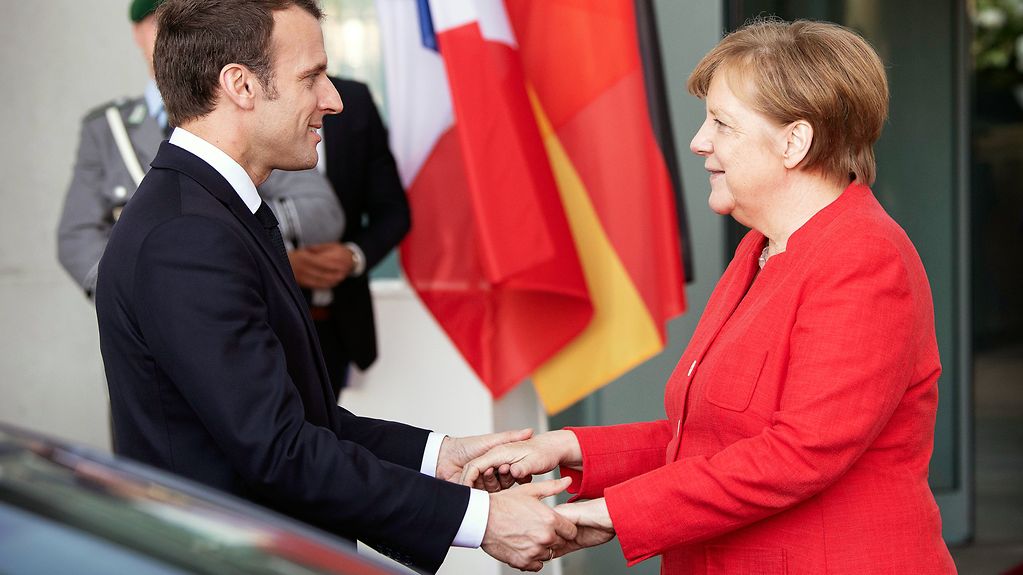Der Link wurde in Ihrer Zwischenablage gespeichert
France and Germany aim to address the challenges of the 21st century together – with close coordination of European policy, robust common foreign and security policy and an economic area with common regulations. All these are covered by the new Treaty of Aachen between Germany and France, which has been approved by the Cabinet in Berlin and is to be signed by Chancellor Angela Merkel and French President Emmanuel Macron in Aachen on 22 January.
2 Min. Lesedauer

A friendly farewell for French President Emmanuel Macron at the end of his visit to Berlin in April 2018
Foto: Bundesregierung/Bergmann
The Treaty of Aachen builds on the 1963 Elysée Treaty, which made a historic contribution to reconciliation between Germany and France. The new treaty is a commitment to a strong, viable, sovereign Europe.
It prescribes the close consultation and coordination that is already standard practice before EU summits. According to its provisions, the two states will "engage in regular consultations at all levels before major European meetings and thus endeavour to identify common standpoints and have joint statements issued by ministers".
The 1963 Elysée Treaty will remain in force in its entirety. At that time the focus was on reconciliation and encounter, which was by no means self-evident. After centuries of rivalries and conflicts, Germany and France’s message was once of reconciliation. The Elysée Treaty laid the foundations for close bilateral cooperation and further European integration.
Under the new treaty, military cooperation is also to be stepped up. This will include the development of joint strategic approaches, including the design of the European Defence Union, a close partnership with Africa, peace and police missions, and even closer consultation and coordination within the United Nations and other multilateral organisations. France supports Germany’s wish for a permanent seat on the United Nations Security Council.
On the basis of existing commitments within NATO, Germany and France assure one another of every possible assistance and support should their territory suffer an armed attack.
The Treaty of Aachen also provides for a harmonisation of commercial law and the coordination of economic-policy measures. Agreements in the fields of climate, environment, health and sustainability are to be implemented swiftly, to enhance the competitiveness and viability of both economies. Ambitious climate goals are to be mainstreamed in all policy fields.
The new treaty supports encounters and exchanges for the people of the two countries. A joint fund will be set up to encourage and support citizen action groups and town twinning arrangements.
And the two countries will also move closer together in the field of education and research. The focus will be on promoting the learning of the other language and the reciprocal recognition of school and professional qualifications.
To improve the everyday life of citizens in border regions, concrete and practical solutions are to be made available. Local actors will be given the opportunity to establish cross-border projects such as nurseries, education facilities, emergency and health services, and industrial estates.